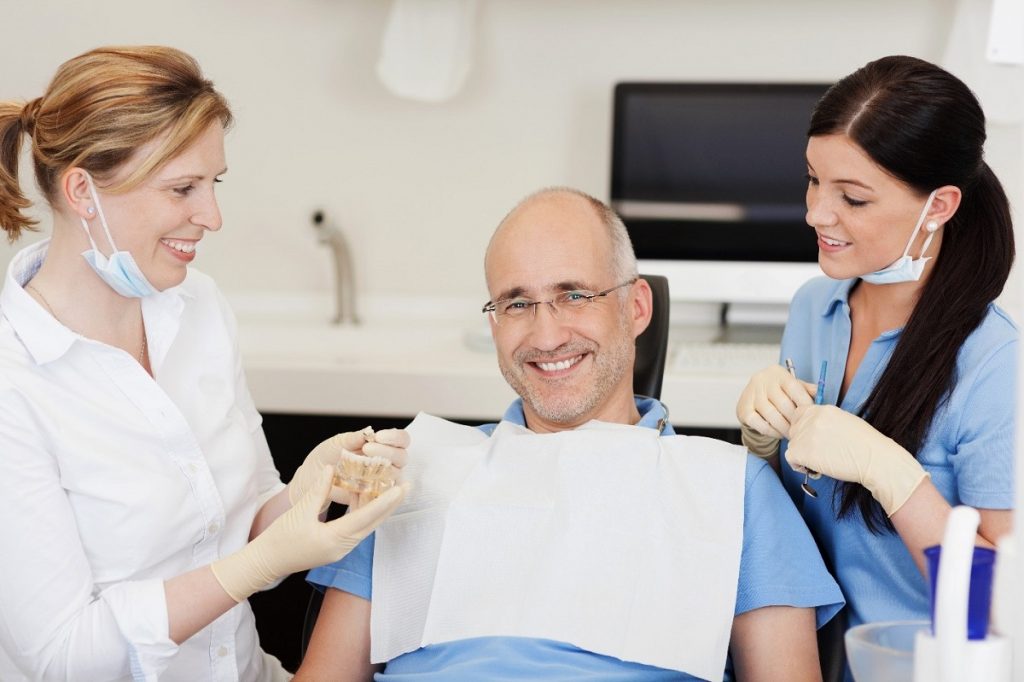So, you have been through the x-rays, you have attended the appointments, and now you are waiting to have your oral implants fitted. Great stuff!
Once your implants are fused and your prosthetic teeth are in place, you will have the ability to laugh, talk, and smile with supreme confidence as your teeth will not move. If you have lived with dentures, then that can be a real relief. But just so you are aware, once your implants are in and are fusing, you will need to adhere to some pretty strict guidelines within those first few weeks, to help your gums heal.
So, how can you help your soon to be dental implants Clapham heal and fuse successfully? Here are 5 top tips.
No brushing
It may seem odd following a dental procedure to not brush your teeth, but following the fitting of the implants, it is wise to leave the implant site alone.
Remember, you have just been through a minor surgical procedure and your gums are going to be inflamed and sore for a while afterwards. So, to keep the site clean and remove any debris, be sure to rinse it up to 4 times a day with lukewarm salt water.
When you brush your surrounding teeth, use a soft-bristled brush and take care not to brush the implant site if possible.
Soft foods only
Once again, to avoid disturbing the implant site for the first few weeks, try to stick to eating soft, nutritious foods like soups, boiled vegetables, and stews.
This does not only prevent the implant site from flaring up, but it ensures that the implant itself stays in place. Hard foods can cause implants to move when they have started fusing, so, to avoid crooked implants, only eat soft foods.
Infection prevention
It goes without saying that infections can be detrimental to implants, so try to keep an eye out for any signs of infection.
Typically, these will include prolonged discomfort at the implant site, discolouration at the implant site (reddening, blueing, or even yellowing), fever, feeling and being sick, and fainting spells. If you experience any of these, contact your dentist and seek urgent medical attention.
Pain relief

As mentioned earlier, after implant surgery, it is important to remember just that; you have had surgery.
And while it may feel OK for the first few days, the gums can start to hurt and tighten as the site heals, so make sure you have some over-the-counter pain relief medication at hand. Generally speaking, the best options for recovering from oral implant fittings include paracetamol. Try to avoid ibuprofen and aspirin as these can thin the blood and prolong the healing time if used excessively.
Appointments and follow-ups
After you have had your implants fitted, your dentist will want to see you for a few follow-up appointments while they fuse.
It is important that you attend these appointments at all costs because that is when your dentist can look for infections and other serious secondary complications.
